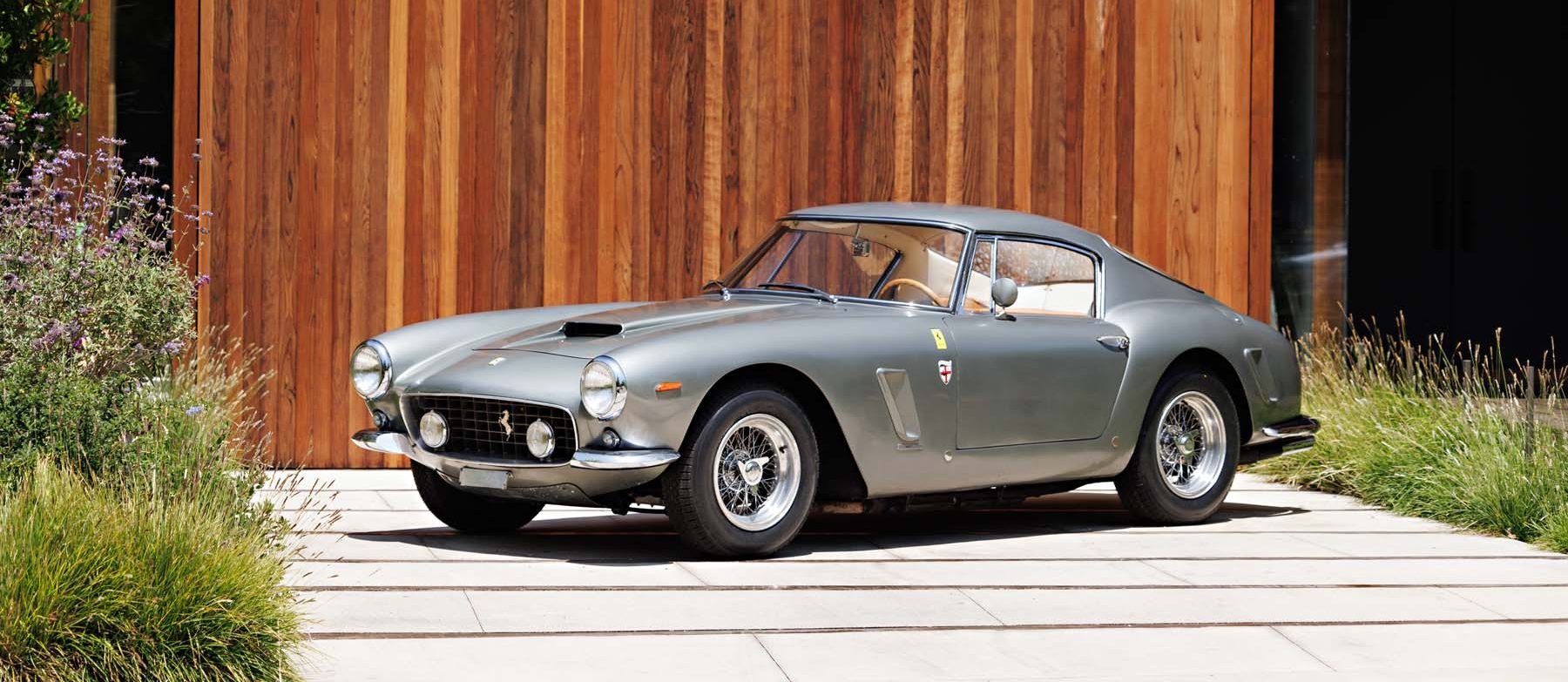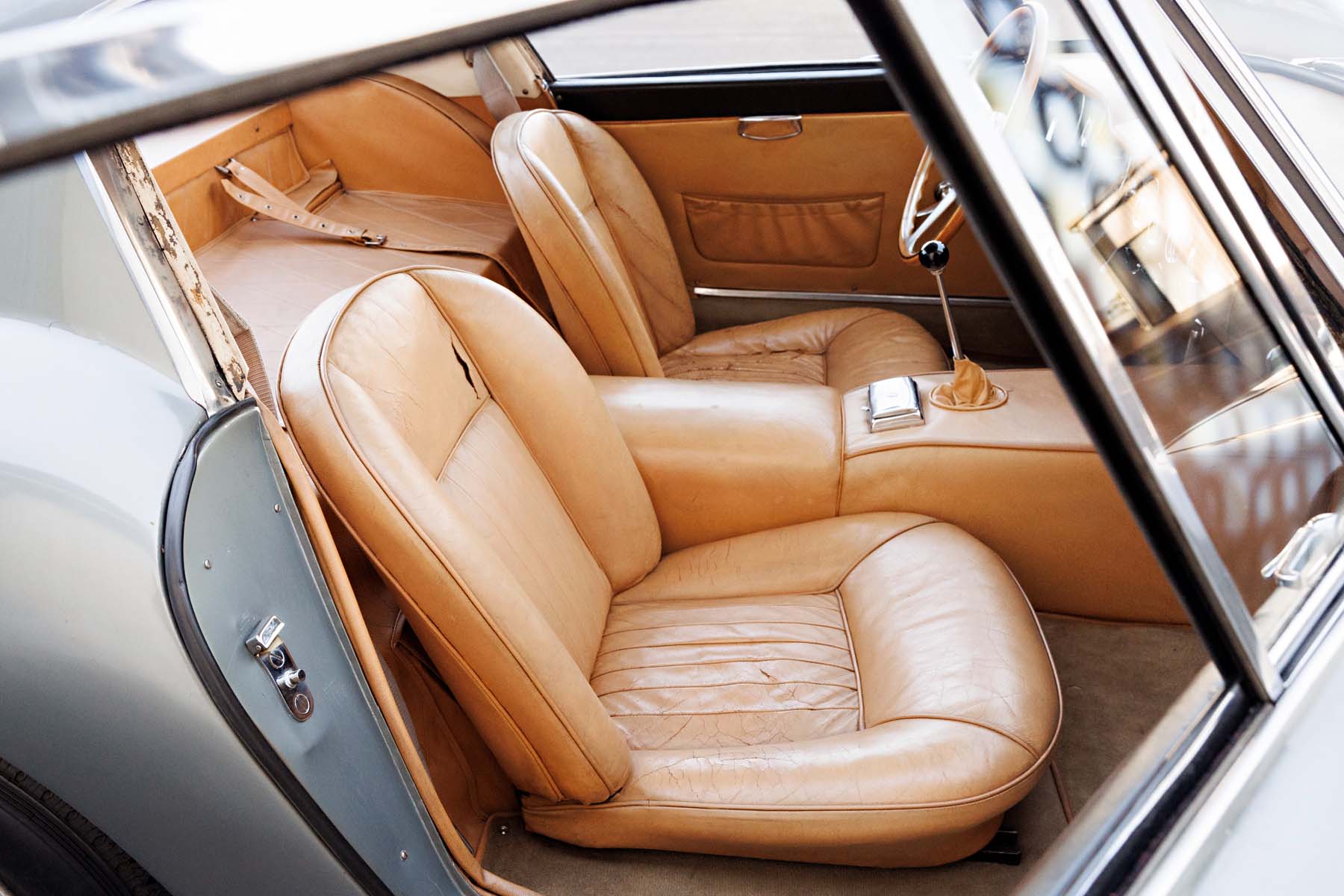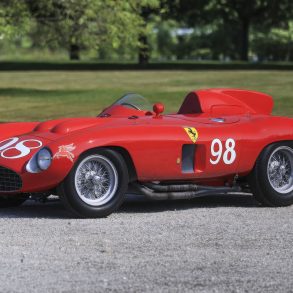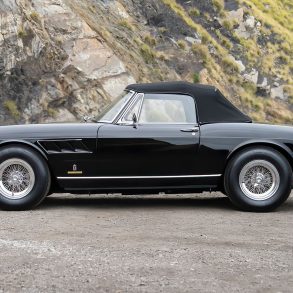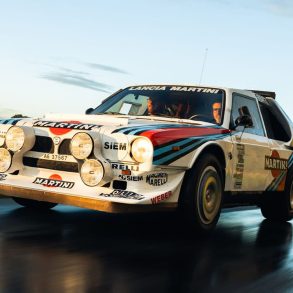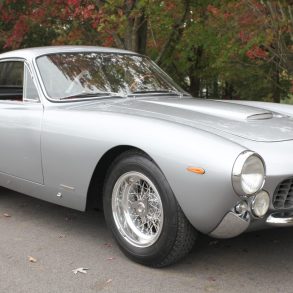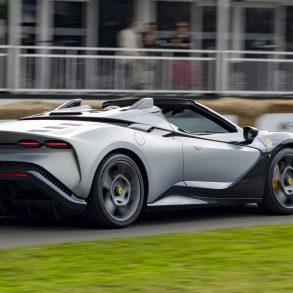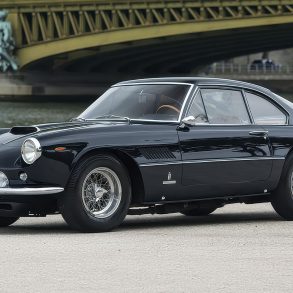The SWB legacy
In the realm of vintage automobile enthusiasts, the Ferrari 250 GT Short-Wheelbase (SWB) Berlinetta unquestionably stands out as a paragon. These machines not only encapsulate the quintessential allure often associated with classic Ferraris – a blend of their storied era, the allure of their Italian lineage, and the masterful touch of Modenese artisans – but they also command admiration for their impeccable aesthetics, unparalleled performance, and multifaceted adaptability.
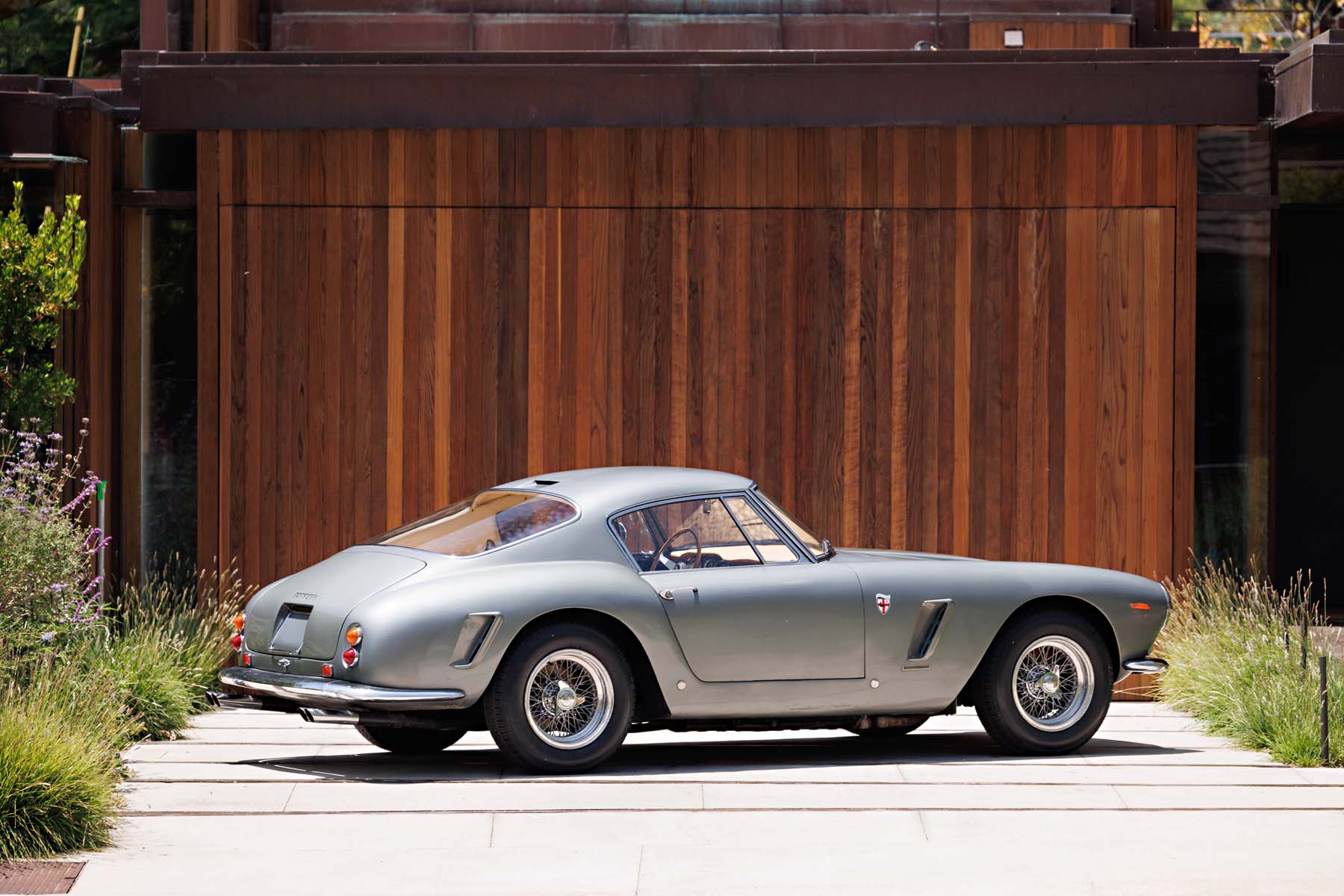
Car Highlights
- Wonderfully Patinated, Unrestored Example of an Iconic Ferrari
- Delivered New to Italian Industrialist Giovanni Renato Scalabrin
- Owned by Famed Ferrari Collector Giulio Dubbini from 1967 to 1985
- Elegant Original Color Scheme of Grigio Metallizzato over Beige Leather
- Just Four Owners from New; Never Before Offered for Public Sale
- Documented by Historian Marcel Massini; Retains Matching-Numbers Engine
Technical Specs
- 2,953 CC SOHC Tipo 168/61 V-12 Engine
- Three Weber 36 DCS Carburetors
- 240 BHP at 7,000 RPM
- 4-Speed Manual Gearbox
- 4-Wheel Vacuum-Assisted Dunlop Disc Brakes
- Front Independent Coil-Spring Suspension with Tubular Shock Absorbers
- Rear Live Axle with Semi-Elliptical Leaf Springs and Tubular Shock Absorbers
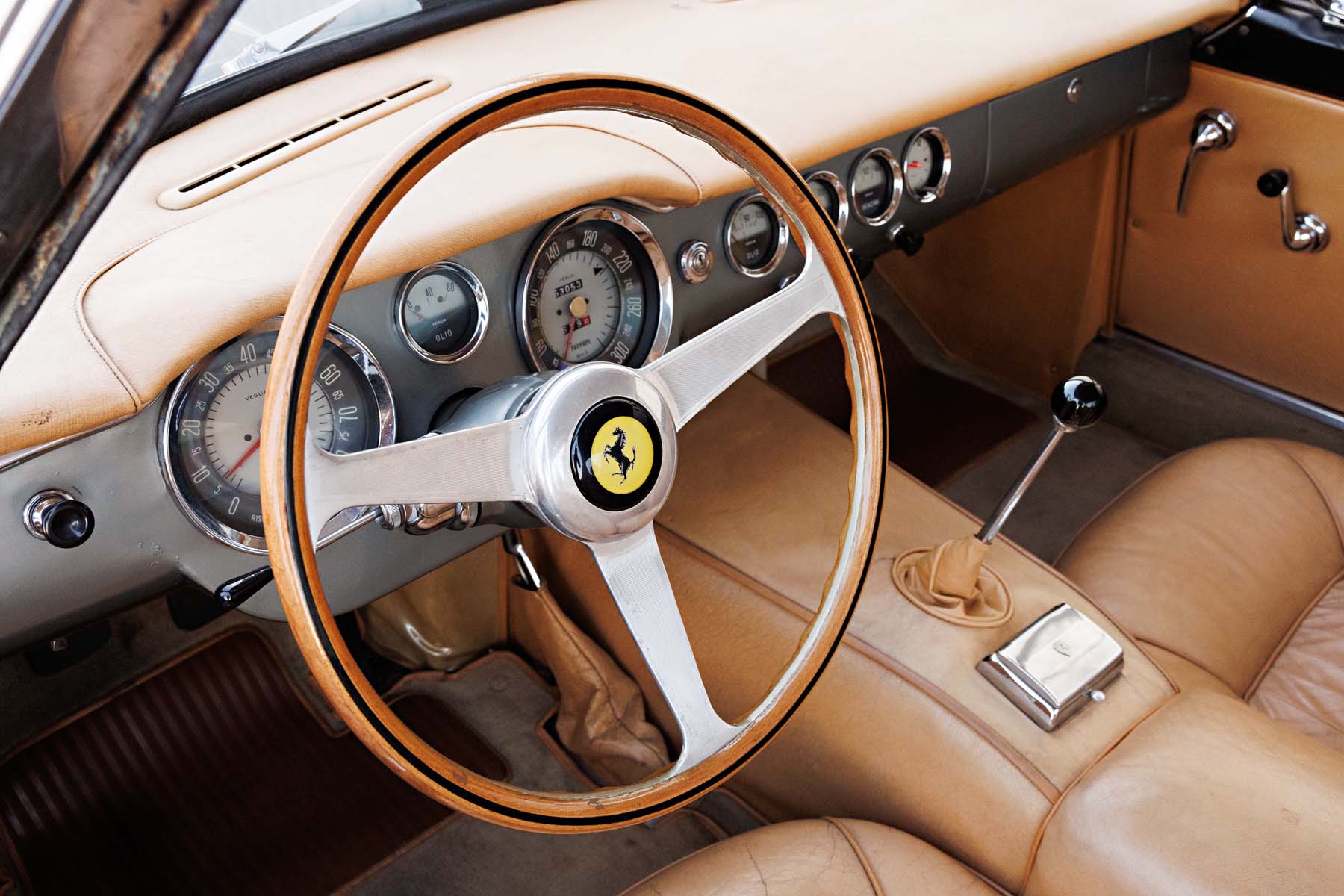
Provenance
- Giovanni Renato Scalabrin, Schio, Italy (acquired new in 1962)
- Giulio Dubbini, Padua, Italy (acquired from the above in 1967)
- Autobar
- Current Owner (acquired from the above)
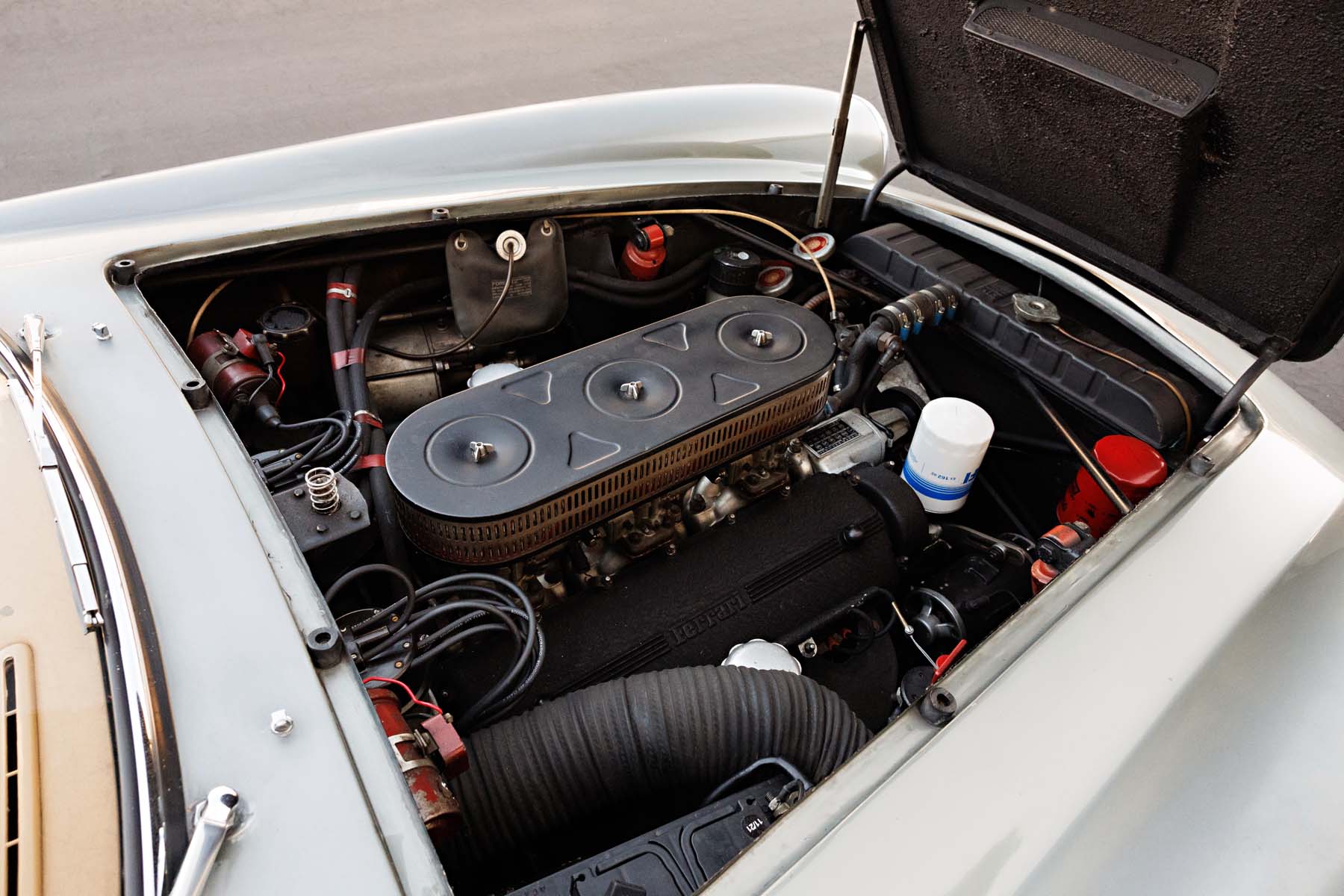
Dream team
Developed under Giotto Bizzarrini, Carlo Chiti, and Mauro Forghieri, the 250 GT SWB was unveiled in September 1959 at the Paris Motor Show as the successor to Ferrari’s dominant Tour de France. Distinguished from its predecessor by its shorter wheelbase (2400 mm vs. 2600 mm), updated suspension, and four-wheel disc brakes, the new SWB Berlinetta featured attractive coachwork designed by Pinin Farina and constructed by Carrozzeria Scaglietti in Modena.
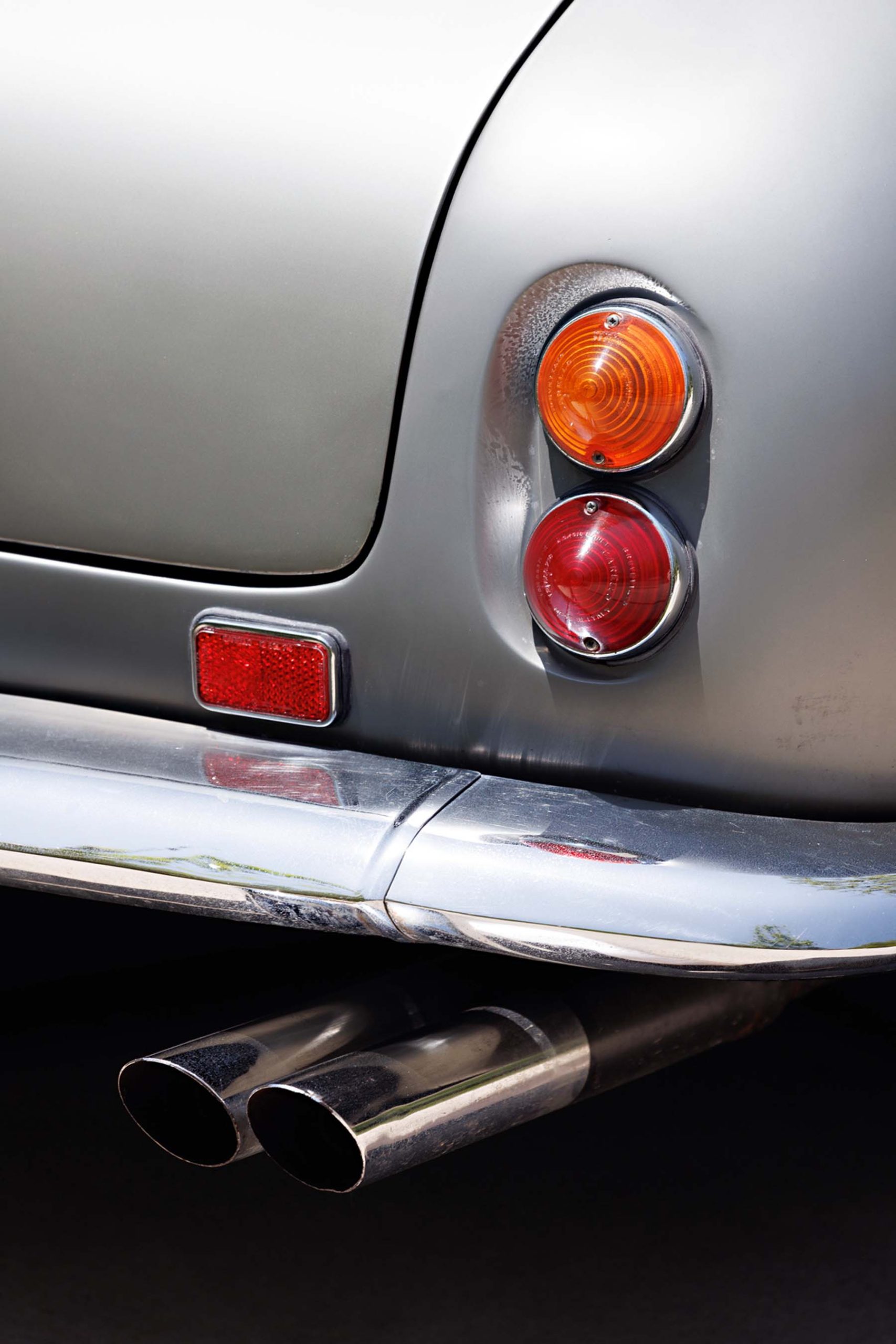
Proven in competition
It did not take long for the SWB Berlinetta to establish itself as the car to beat at the highest levels of international GT racing. In 1960, their debut season, competition-prepared SWB Berlinettas captured class wins at both the 12 Hours of Sebring and the 24 Hours of Le Mans and claimed overall victories at Tour de France, Paris 1000 Kilometers, Coppa Inter-Europa, RAC Tourist Trophy at Goodwood, and Nassau Tourist Trophy.
As Ferrari further developed the SWB for the 1961 season, the road-going Lusso version became increasingly sophisticated. Late-production Berlinettas benefited from myriad improvements introduced throughout the model’s production run, including more robust mechanical components such as pressure-cast engine blocks, wider wheels, and revised suspension settings. Likewise, subtle updates to the Scaglietti coachwork – including more comfortable seats, a revised dashboard, improved ventilation, and locking fuel door – made the late-production Lusso Berlinetta an altogether more refined and user-friendly machine for its intended purpose: long-distance, high-speed touring.
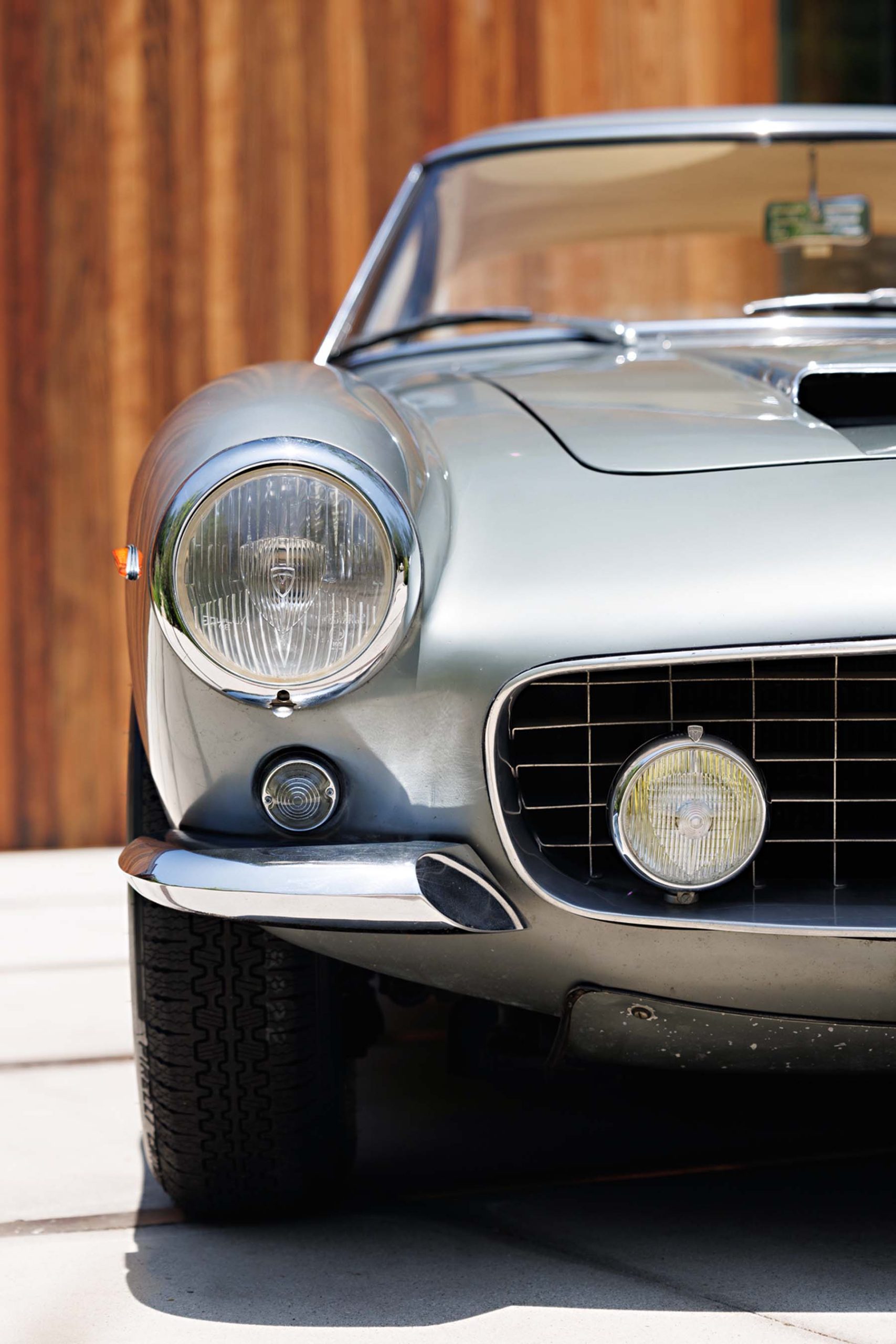
Limited Production
Between 1960 and 1963, just 165 SWB Berlinettas of all types were built. During this same period, Scuderia Ferrari ascended to the absolute height of its powers. Its sports racing cars captured a string of overall wins at Le Mans and Sebring along with repeat FIA World Sportscar Championships, while its Grand Prix machines earned the Formula 1 Constructors’ Championship for 1961. It was truly a golden age for Ferrari – one that would never be repeated.
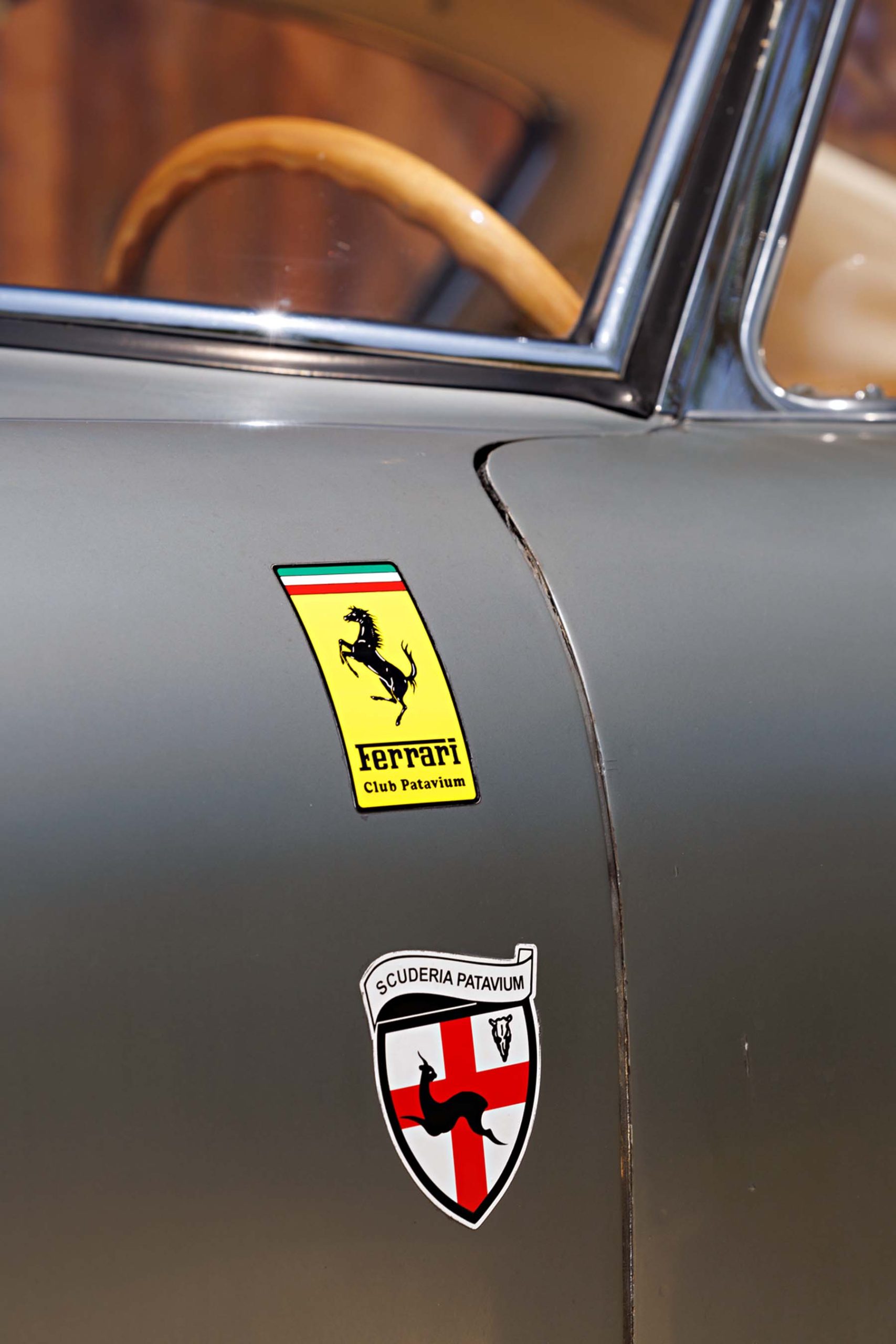
Chassis 3507 GT
The remarkable history of this 250 GT SWB Berlinetta, chassis 3507 GT, can be traced back to its original owner, Giovanni Renato Scalabrin.
Sig. Scalabrin was born on February 4, 1901, in Schio, Italy, a small industrial town at the foothills of the Dolomites that was once the capital of wool production for the Republic of Venice. In 1907, his family established Società Fabbrica Navette Federle & C. S.a.s., a business that specialized in manufacturing the “flying shuttle,” a device invented in the 1700s that revolutionized the textile industry. By the early 1960s, the Scalabrin family’s company had grown to become one of the leading firms of its type, with some 500 employees and a large headquarters in the heart of Schio.
In June 1962, Sig. Scalabrin took delivery of this 250 GT SWB Berlinetta, which was finished in the tasteful, understated color scheme of Grigio Metallizzato (Metallic Gray) with beige leather upholstery. According to Jess G. Pourret’s definitive book Ferrari 250 GT Competition Cars, 3507 GT was completed as a “Lusso Berlinetta with 36 DCS Weber carburetors, light pistons, and tuned exhaust.” As documented in Automobile Club d’Italia (ACI) registration records on file, the new Ferrari cost 5,750,000 lire and was first registered in Vicenza, Italy, as “VI 63600.”
Throughout his ownership, Sig. Scalabrin had 3507 GT serviced at Ferrari’s Assistenza Clienti department in Modena, located approximately 200 km from Schio. Records on file indicate that he had driven the SWB approximately 10,000 km by April 1963 and added another 5,000 km by that October.
Sig. Scalabrin kept his SWB Berlinetta until 1967, when he acquired a new 275 GTB/4. At that time, 3507 GT was sold to its second owner, the pioneering Italian car collector Giulio Dubbini. Based in nearby Padua, Sig. Dubbini was well known for his impressive stable of sports and racing cars, which included important Alfa Romeos, Maseratis, and many of the finest Ferraris, including a 250 Testa Rossa, 250 MM Berlinetta, 500 TRC, 500 Mondial, and 212 Export. In addition to his extraordinary automotive holdings, Sig. Dubbini was a great enthusiast who helped organize many historic events including the Coppa d’Oro delle Dolomiti Storica.
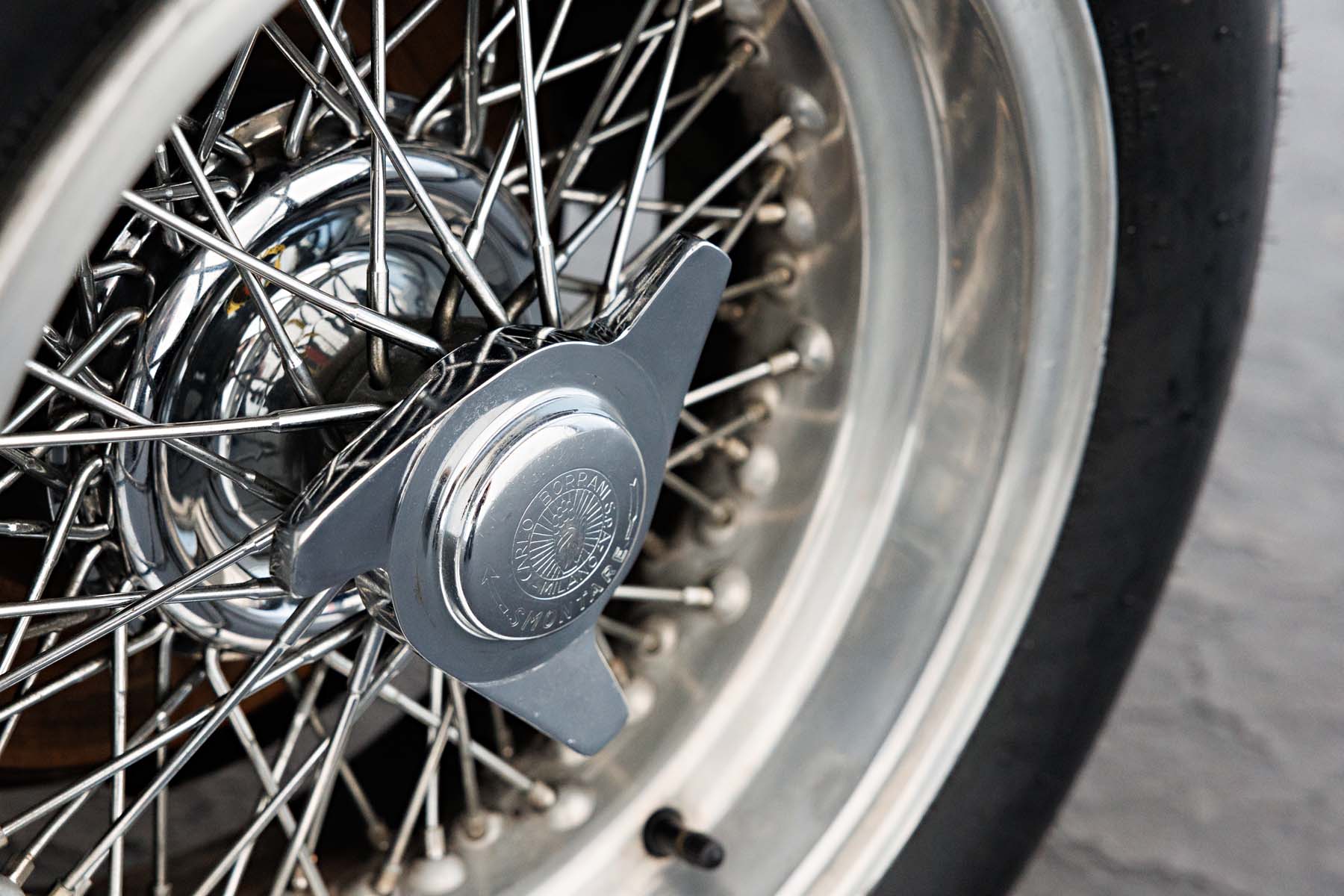
3507 GT was registered in Padua as “PD 187195” and later accepted by the Registro Automotoclub Storico Italiano during his ownership. Although the SWB was used sparingly, in September 1981, Sig. Dubbini drove it to the ACI Raid Ferrari d’Epoca meeting held in Modena. A photo taken at the event by Ferrari historian Marcel Massini shows the 19-year-old Ferrari appearing very much as it does today.
In 1985, Sig. Dubbini sold the car to a fellow Padua-based collector, who registered it under his company’s name, Autobarche di Fabrizio Areni Bentivoglio & C. S.a.s. Over the next two decades, 3507 GT was maintained in good order and driven on special occasions, as it was in 2010, when it took part in the Coppa d’Oro delle Dolomiti Storica.
Now in the care of its fourth owner, 3507 GT is particularly noteworthy for its remarkably original condition. Unlike most 250-series Ferraris, this SWB Berlinetta has never been restored; it has been regularly exercised and maintained in good working order. As a result, it retains a refreshingly authentic character, providing an insight into what these cars were like when they were new.
Even today, this Ferrari retains its original beige leather upholstery, which possesses a fantastic, irreplaceable patina. The beautiful upholstery perfectly suits the car’s mottled gray paintwork, which has been touched up over the years, as needed. Furthermore, the SWB Berlinetta possesses wonderful, original details throughout – original glass, period Irvin seat belts, and proper Borrani RW3690 wire wheels. Significantly, there is no record of 3507 GT having its original mechanical components exchanged or of it being involved in an accident – a rarity among SWB Berlinettas. In fact, examples that have survived in similarly well-maintained, unrestored condition can be counted on one hand.
As a late-production SWB Berlinetta, 3507 GT ranks among the most beautiful and iconic sports cars ever built. Finished in its elegant factory-delivered color scheme and presented in largely unrestored order, it is all the more enticing. Consider that it has covered approximately 53,000 km (33,000 miles) from new, and you have an exceptionally desirable 250 Ferrari.
Not only is this a significant Ferrari of unrivaled rarity and beauty, its remarkable history and known provenance are second to none. Since 1962, it has had just four responsible owners, with all but the present custodian located in Northern Italy, just a few hundred km from where 3507 GT was delivered new. In their care, this SWB Berlinetta benefited from exceptional stewardship and its condition today reflects the care and attention it has continued to receive.
In keeping with its soulful character, 3507 GT is offered with its original keys, a proper tool roll, and a file of documentation that includes a history report produced by Marcel Massini, copies of Automobile Club d’Italia registration records, ACI-CSAI regularity papers, and even an original invoice from Ferrari’s service department dated April 23, 1963.
A Ferrari SWB Berlinetta of this character is hard to come by. Very few examples possess the outstanding qualities of this car, which has been an object of desire since the late 1960s, when it was acquired secondhand by one of Italy’s most famous collectors.
While any 250 GT Berlinetta ought to be regarded as a top-tier collector car, 3507 GT is undoubtedly a star among the best of them.


